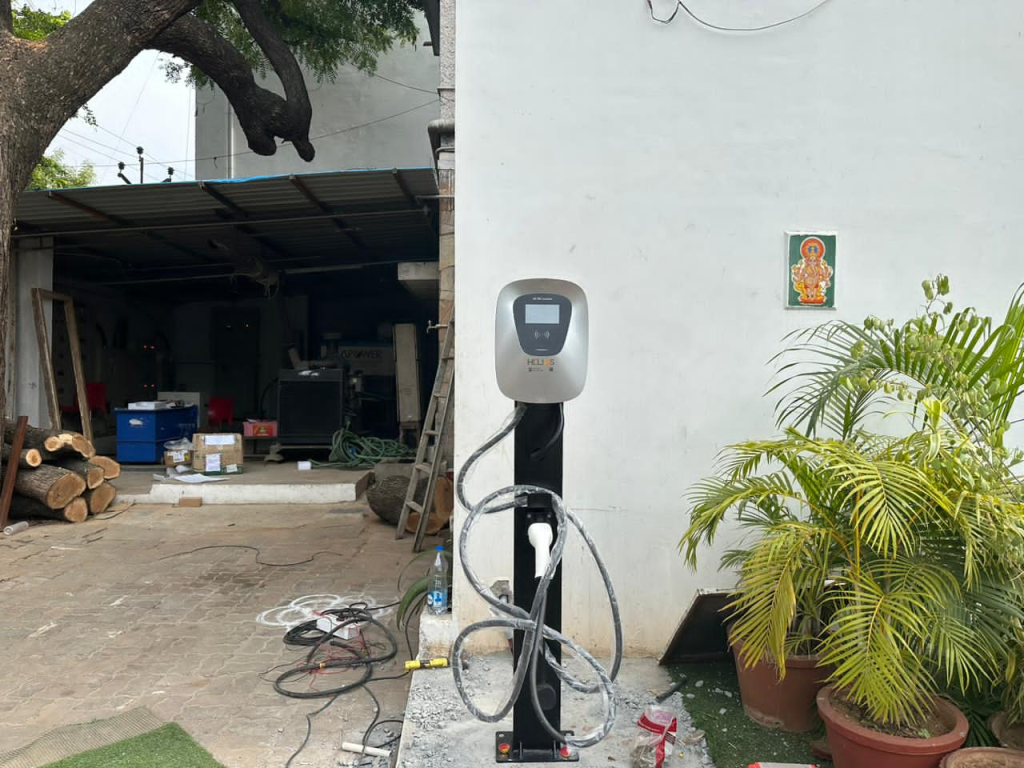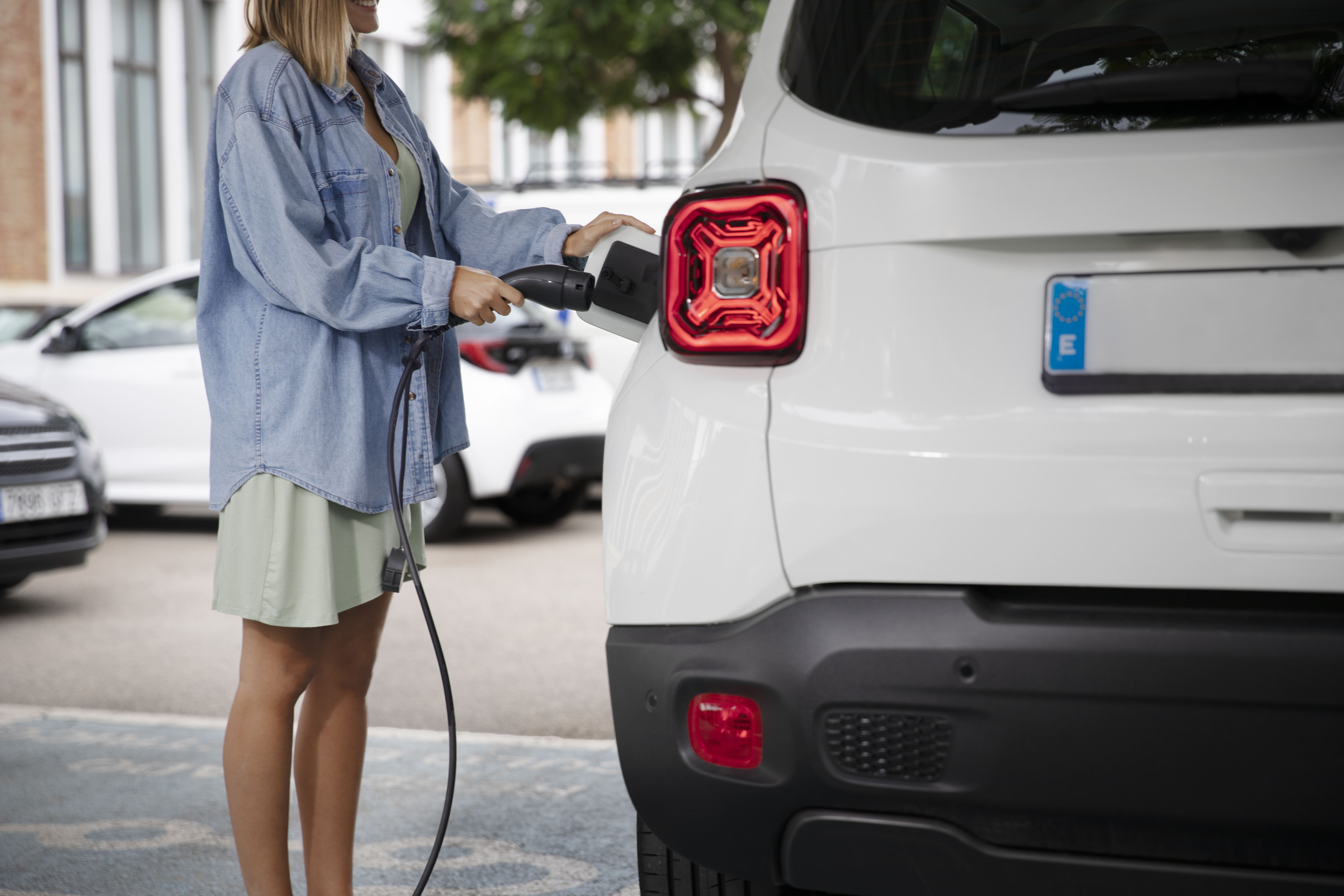
Products
Fast, Reliable, Everywhere

Solutions
Efficient, Innovative EV Charging Solutions.
News
We are committed to the innovation and application of EV charging.
Is EV Charging at Home with 22 kW AC a Good Option? Absolutely. When I first switched to an electric vehicle, I was thrilled by the environmental benefits and cost savings. However, the hassle of relying on public charging stations—long waits and inconsistent availability—soon became frustrating. That’s when I decided to choosing a 22kW AC home charger. In this article, I’ll share why this powerful charging option turned out to be the perfect solution for my needs.

When I looked into installing an EV with 22kW AC charging at home, the costs quickly became apparent. The charger itself is the first major expense, typically costing between $1,500 and $3,000. This is noticeably higher than a standard 7kW charger, which ranges from $500 to $1,200.
But the costs don’t end with the charger. A 22kW AC charger needs a three-phase electrical supply, which most homes don't have. Upgrading to accommodate this higher power can be pricey, often ranging from $2,000 to $5,000. This cost varies based on the complexity of the upgrade and the condition of your current electrical system.
Additionally, permits and inspections are usually required. Many areas mandate permits for installing high-powered chargers like the 22kW AC model. These permits can cost between $100 and $500. An inspection to ensure the installation meets safety codes might also be necessary, adding further costs.
Labor is another significant factor. Hiring a certified electrician is essential for a proper and safe installation. Electricians charge between $50 and $100 per hour, and the total labor cost can range from $500 to $1,500, depending on how complex the installation is.
Adding up all these expenses, the total initial investment for a 22kW AC charger at home typically falls between $4,100 and $9,500. This includes the charger, electrical upgrades, permits, inspections, and labor. Although these costs are substantial, they are necessary for setting up a high-powered charging solution at home. It’s crucial to consider these expenses when deciding if a 22kW AC charger is the right choice for your needs.
When I first looked into installing an EV with 22kW AC charging at home, I knew there was more to consider than just the initial costs. Over time, I realized that the real value lies in the long-term savings and benefits that come with such an investment.
One of the first things I noticed was how much time I saved. With an EV equipped with 22kW AC charging, my car charges much faster than it would with a lower-power charger. This meant fewer hours spent waiting for my car to charge, which was a game-changer for my busy schedule. Instead of worrying about whether my vehicle would be ready in time for the next day, I could rest easy knowing it would be fully charged in just 2-3 hours.
Another major benefit was the reduced reliance on public charging stations. Public chargers are convenient when traveling, but they often come with higher costs per kilowatt-hour (kWh). By charging at home, I took advantage of lower electricity rates, especially during off-peak hours. Charging at home typically costs about $0.12 per kWh, which is much more economical than public chargers, where rates can be as high as $0.30 per kWh. Over time, these savings added up, offsetting the initial investment in the 22kW AC charger.
Additionally,the environmental benefits cannot be ignored. By charging my EV at home, I have more control over the energy sources I use. For instance, I can choose to charge my car during times when the grid is powered by more renewable energy, further reducing my carbon footprint. This was an important factor for me as I strive to live a more sustainable lifestyle.
In just a few months, the long-term benefits of having an EV with 22kW AC charging at home have proven to be worth the investment.
When I considered installing a 22kW AC charger at home, I compared 22kW with 7kW home charger. A 7kW home charger is cheaper, costing between $500 and $1,200, but it takes longer to charge—up to 6-8 hours for a full charge. In contrast, the 22kW AC charger charges my EV in just 2-3 hours, making it more convenient.
Public charging stations are another option. While they are handy on the go, they often charge up to $0.30 per kWh, compared to around $0.12 per kWh at home. This price difference means that over time, charging at home can be much more economical.
Workplace chargers might be an option, but they aren't always available or practical. Having a 22kW AC charger at home means I don’t rely on public or work stations, giving me more control and flexibility.
The 22kW AC charger outperforms others with faster charging and greater convenience. Though the upfront cost is higher, it offers significant benefits over 7kW chargers and public stations. The 22kW AC charger is a solid choice for home use.

From my experience, installing a 22kW AC charger at home offers several compelling advantages. One of the most significant benefits is the faster charging speed. With a 22kW AC charger, I can fully charge my electric vehicle (EV) much quicker than with lower-power chargers. This speed can make a big difference in daily convenience, allowing me to spend less time waiting and more time driving.
Another key benefit is the convenience of having a dedicated charger at home. I no longer need to plan trips around finding public charging stations or deal with the uncertainty of availability. With my own 22kW AC charger, I can charge my EV overnight or whenever it suits me, without the stress of public charging infrastructure.
Installing a 22kW AC charger also adds value to my property. Potential buyers with EVs will see it as a desirable feature, which could be a strong selling point if I decide to move in the future. It’s a forward-thinking upgrade that aligns with the growing popularity of electric vehicles.
Moreover, having a high-powered charger gives me greater control over my charging schedule. I can take advantage of off-peak electricity rates by setting my charger to operate during lower-demand times. This can lead to potential savings on my electricity bill.
In summary, a 22kW AC charger enhances convenience, boosts home value, and offers greater control over charging. For anyone considering an upgrade, these benefits make a strong case for investing in a 22kW AC charger for home use.

I remember when Sarah from Denver first questioned whether a 22kW AC charger was really worth the investment for home use. She had been using a standard 7kW charger for her electric vehicle and was skeptical about the need for something more powerful. But after she decided to upgrade to a 22kW AC charger, her perspective completely changed.
Sarah had a busy work schedule and often took her Tesla Model Y on long weekend trips. One Friday evening, she came home late from the office, and her car’s battery was nearly depleted. With the 22kW AC charger, she managed to top up her Tesla’s battery quickly. What used to take overnight with her old charger now took just a few hours. The convenience of not having to wait until the next morning made a huge difference in her routine.
Another time, Sarah and her family planned a trip to the mountains in Colorado. With the 22kW AC charger installed, they were able to get their Tesla ready in no time before hitting the road. This quick charging capability meant they didn’t have to worry about making additional stops or spending time at public charging stations, which can be unpredictable and inconvenient.
Sarah’s initial doubts about the 22kW AC charger quickly vanished once she experienced the benefits herself. The added convenience, especially with her demanding schedule and frequent trips, made her realize that the 22kW charger was indeed a valuable investment for her home. If you’re in a similar situation, considering a higher-capacity charger like Sarah’s might just be the practical choice you need.
Installing a 22kW AC charger at home has proven to be a great choice for me, offering speed and convenience like no other. If you're thinking about upgrading your charging setup, a 22kW AC charger could be just what you need. Discover the benefits for yourself—contact us today to learn more about how a 22kW AC charger can make home EV charging simpler and more efficient.
